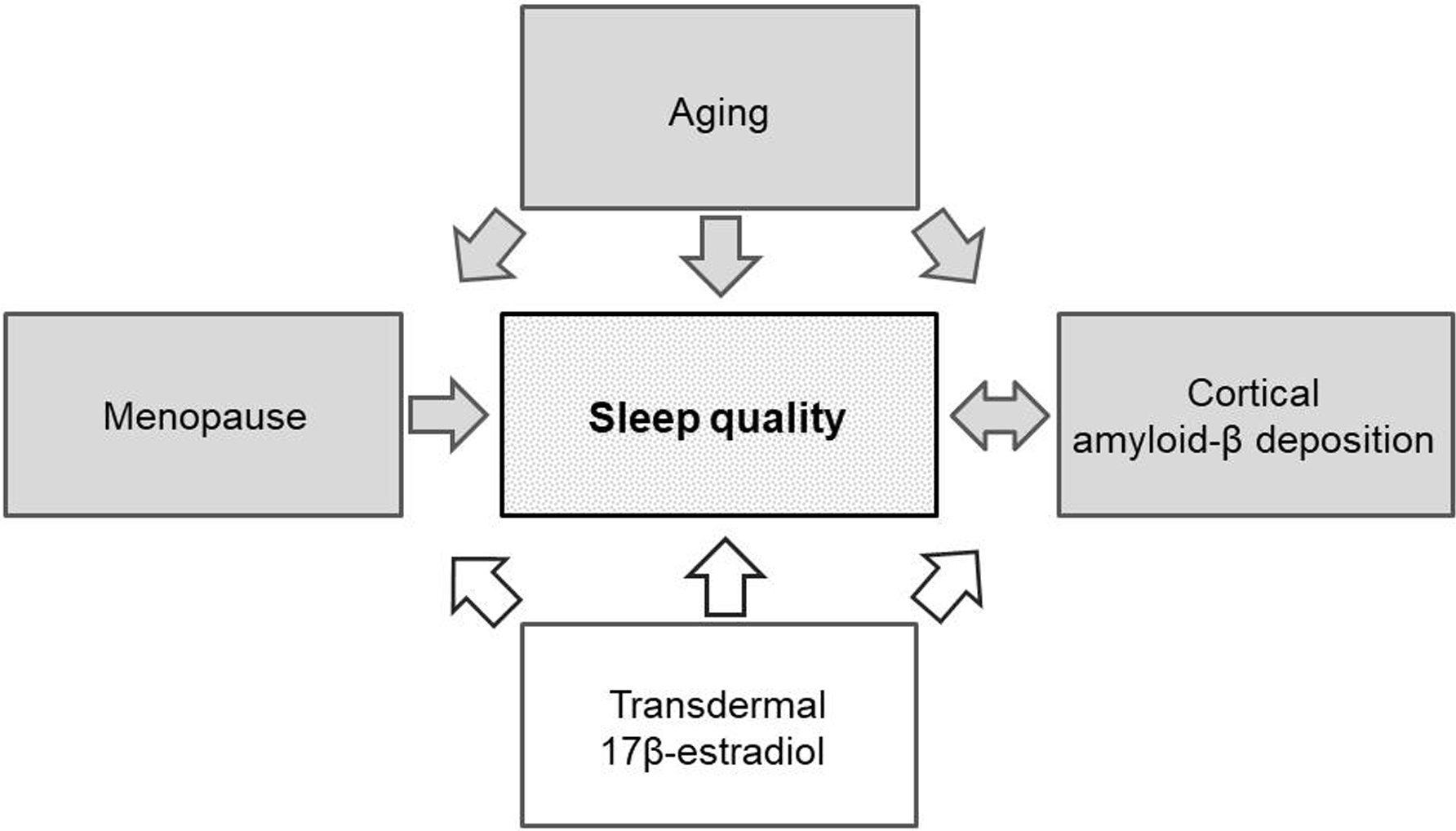Figure 1. Relationships between aging, menopause, sleep quality, cortical amyloid-β deposition and transdermal 17β-estradiol.

Aging is a risk factor for sleep disturbances and poor sleep quality. Menopause influences sleep quality mostly due to ovarian hormone deficiencies during the perimenopausal and early menopausal period. There is a bi-directional relationship between poor sleep quality and higher cortical amyloid-β deposition. Transdermal 17β-estradiol potentially modifies the relationship between sleep quality and cortical amyloid-β deposition during perimenopause and early menopause. Gray arrows represent potential risk factors and white arrows represent potential beneficial effects based on the associations identified in the earlier studies and the current study [4–8, 17–22, 26, 27, 43].
